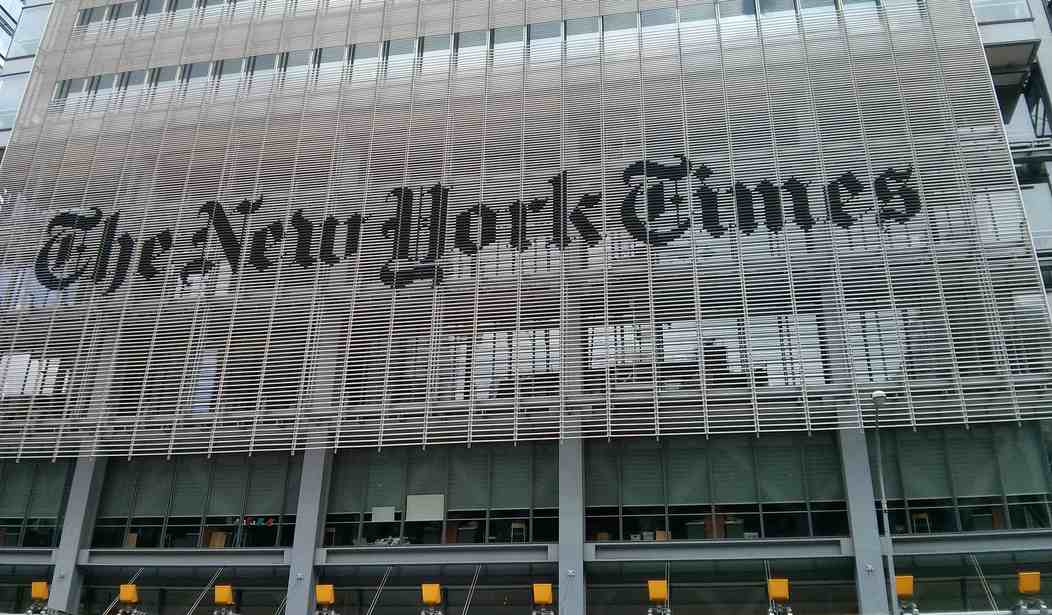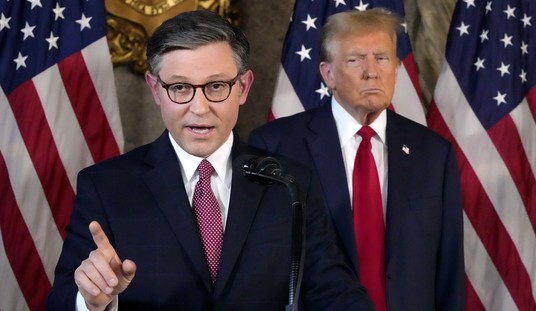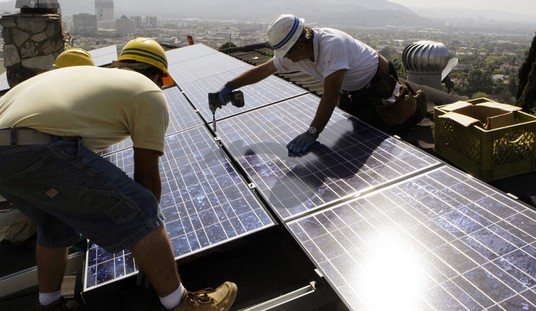America may be struggling with a global pandemic, but don’t expect The New York Times to miss this opportunity to demonize those pesky “anti-science” conservatives. Sure, the paper can’t blame evangelical Christians for the coronavirus exactly, but it can insinuate that they’re responsible for the Trump administration’s supposed failure to combat it effectively.
On Friday, the Times ran an op-ed declaring that “The Road to Coronavirus Hell Was Paved by Evangelicals.” The subhead? “The Religious Right’s Hostility to Science Is Crippling Our Coronavirus Response.” On Monday, it ran another op-ed from Paul Krugman entitled “This Land of Denial and Death,” which attempted to link Republicans’ “science denial” to “evangelical Christian leaders” and suggested there may be “a link between the uniquely American prevalence of science denial and America’s uniquely high mortality.”
These op-eds highlight the growing animus against conservative Christians among American elites, a sociological phenomenon documented by professors George Yancey and David Williamson in their book So Many Christians, So Few Lions: Is There Christianophobia in the United States. The sociology professors focus on bias against conservative Christians, arguing that this “Christianophobia” is as real as the animus against Muslims and Jews.
These recent New York Times articles are clear cases of Christianophobia. Both intentionally ignore the historical roots of science in Christianity and the scientific backing for conservative causes like opposition to abortion. They parrot the idea that “science” is not only settled but settled in favor of liberal opinions and liberal policies.
Both articles insinuate that evangelical Christianity is backward. Katherine Stewart, author of the “road to coronavirus hell” article, claims that “Donald Trump rose to power with the determined assistance of a movement that denies science, bashes government and prioritized loyalty over professional expertise. In the current crisis, we are all reaping what that movement has sown.”
Stewart, who wrote a book called The Power Worshippers: Inside the Dangerous Rise of Religious Nationalism, traces religious nationalism to “the proslavery theologian Robert Lewis Dabney,” a chaplain in the Confederate States Army. “Today, the hard core of climate deniers is concentrated among people who identify as religiously conservative Republicans.” She notes that some conservative Christians have warned that environmentalism can be an alternative theology (as indeed, it can).
Stewart sought out examples of pastors who have bucked CDC guidance — and in some cases, legal government orders — not to gather for worship in person. Some prosperity-gospel-minded pastors have suggested that God would not allow believers to contract the virus at their churches. Stewart seizes on the example of Guillermo Maldonado, who hosted Trump for a campaign event at his Miami megachurch earlier this year. “Do you believe God would bring his people to his house to be contagious with the virus? Of course not,” Maldonado said. Such warped theology is not at all representative, either of the Bible or of mainstream evangelical theology.
“Religious nationalism has brought to American politics the conviction that our political differences are a battle between absolute evil and absolute good. When you’re engaged in a struggle between the ‘party of life’ and the ‘party of death,’ as some religious nationalists now frame our political divisions, you don’t need to worry about crafting careful policy based on expert opinion and analysis,” Stewart argues. “Fealty to the cause is everything; fidelity to the facts means nothing.”
Yet America’s polarization is hardly unique to conservatives and even the pro-life politics Stewart condemns are based in the best science — genetics shows the individuality of each human person from the moment of conception, and developmental biology has revealed that human babies feel pain very early in pregnancy.
Political partisans can use claims about “science” to bolster policies on both sides of the aisle. Partisanship also often blinds people to politically inconvenient truths, creating information “bubbles.”
Stewart’s own biases are readily apparent in her claim that “the incompetence of the Trump administration in grappling with this crisis is by now well known, at least among those who receive actual news.” Her “actual news” seems to overlook the many early actions the Trump administration took against the coronavirus — actions experts have concluded saved lives. Sure, the president minimized the danger early on and his response has not been perfect, but he has performed admirably during the crisis — even Democrats and CNN hosts have praised his leadership.
Stewart blames “the Christian nationalist movement” for “ensuring that our government is in the hands of people who appear to be incapable of running it well.”
She seizes on Health and Human Services Secretary Alex Azar, a cabinet sponsor of Capitol Ministries, a White House Bible study group. She faults Azar for rebranding his department the “Department of Life” and for reversing Obama’s infamous HHS abortifacient mandates by establishing a division of Conscience and Religious Freedom. Stewart condemns this division as “designed to permit health care providers to deny legal and often medically indicated health care services to certain patients as a matter of religious conscience.”
Stewart also condemns the Trump administration’s support for free markets, condemning “the life-threatening belief in the privatization of everything” and tracing it back to “Christian nationalism.”
Yet her article makes one key concession. “By all accounts, President Trump’s tendency to trust his gut over the experts on issues like vaccines and climate change does not come from any deep-seated religious conviction,” she writes. “But he is perfectly in tune with the religious nationalists who form the core of his base.”
As proof of this supposedly dangerous tie to Christian nationalism, Stewart cites Trump’s hope that America would be “opened and just raring to go by Easter.”
“He could, of course, have said, ‘by mid-April.’ But Mr. Trump did not invoke Easter by accident, and many of his evangelical allies were pleased by his vision of ‘packed churches all over our country,'” she scolds.
Was Trump’s invocation of Easter offensive, or is Stewart just overly sensitive to any mention of Christianity coming from the president’s lips?
Krugman does not focus his article on evangelical Christians, but he does trace the “denial” making coronavirus worse back to them.
“Among advanced countries, the United States has long stood out as the land of denial and death. It’s just that we’re now seeing these national character flaws play out at a vastly accelerated rate” due to the virus, he argues. “Epidemiologists trying to get a handle on the coronavirus threat appear to have been caught off guard by the immediate politicization of their work, the claims that they were perpetrating a hoax designed to hurt Trump, or promote socialism, or something. But they should have expected that reaction, since climate scientists have faced the same accusations for years.”
Krugman claims the U.S. Republican party is the “epicenter” of “climate-change denial” and he also faults the 2016 GOP presidential candidates for failing to endorse the theory of evolution.
“What lies behind Republican science denial? The answer seems to be a combination of fealty to special interests and fealty to evangelical Christian leaders like Jerry Falwell Jr., who dismissed the coronavirus as a plot against Trump, then reopened his university despite health officials’ warnings, and seems to have created his own personal viral hot spot,” Krugman claims. Falwell did not fully reopen Liberty University, keeping classes online. Many Christians have firmly denounced his decision to welcome students and faculty back to campus amid the pandemic.
Krugman claims that “decades of science denial on multiple fronts set the stage for the virus denial that paralyzed U.S. policy during the crucial early weeks of the current pandemic.”
Was it “science denial” or impeachment that kept Americans busy during late January and early February as the coronavirus started expanding outside of China?
Evangelical Christians are far from perfect, and we should be the first to admit as much. However, these New York Times articles rush to demonize as “anti-science” proponents of the very Christian faith that helped inspire the birth of science in the first place.
Tyler O’Neil is the author of Making Hate Pay: The Corruption of the Southern Poverty Law Center. Follow him on Twitter at @Tyler2ONeil.








Join the conversation as a VIP Member